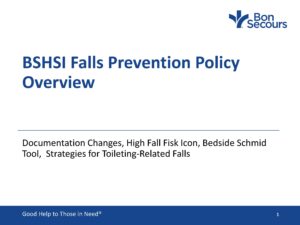Menu
- 3 Offices:
- Hampton
- Newport News
- Williamsburg
For 25+ years, Mr. Waterman has championed the legal fight for the discovery and the admissibility of policies and procedures (“P&P”) of hospitals, nursing homes, and other healthcare facilities. His advocacy for victim patients has produced a sea-change in judicial thinking and rulings.
Before 1997, healthcare providers (“HCPs”) strenuously opposed all P&P discovery, uniformly claiming “privilege” against discovery under Va. Code §8.01-581.17 and inadmissibility under the archaic “private rules” doctrine. Inequitably, HCPs opposed discovery of P&P by Plaintiff victim patients in medical malpractice cases, while unilaterally disclosing their P&P to their litigation experts surreptitiously and/or introducing their P&P at trial surprisingly.

In 2006, however, the Judicial Conference of Virginia published: “Majority view [now] supports discoverability of internal [HCPs] policies.” Currently, Mr. Waterman has collected 109+ Court rulings in favor of P&P discovery, and permits all other lawyers use his very lengthy form legal brief toward obtaining P&P in their medical malpractice cases.
P&P tend to be uniform across the healthcare industry, evincing state administrative regulations, national accreditation dictates, professional society norms, etc. – which is a primary reason why HCPs fight tooth-and-nail against discovery of their P&P. P&P should be admissible in evidence at trial for “standard of care,” and already have been opined admissible as to “habit” and “routine practice”, to “impeachment”, to “control”, to “agency” and “vicarious liability”, to “awareness” and “notice, and to being “outdated”.
Obviously P&P are very powerful supporting evidence for Plaintiff patients in medical malpractice suits because they were created and used by the Defendant HCPs themselves. That is especially so when the Defendants have behaved contrary to their own P&P.
Williamsburg Office:
217 McLaws Circle
Suite 3
Williamsburg, VA 23185
Call: (757) 881-9881
Fax: (888) 886-5352
Avery@WatermanLawCenters.com
Newport News Office:
11817 Canon Boulevard
Suite 206
Newport News, VA 23606
Hampton Office:
2101 Executive Drive
Suite 130
Hampton, VA 23666